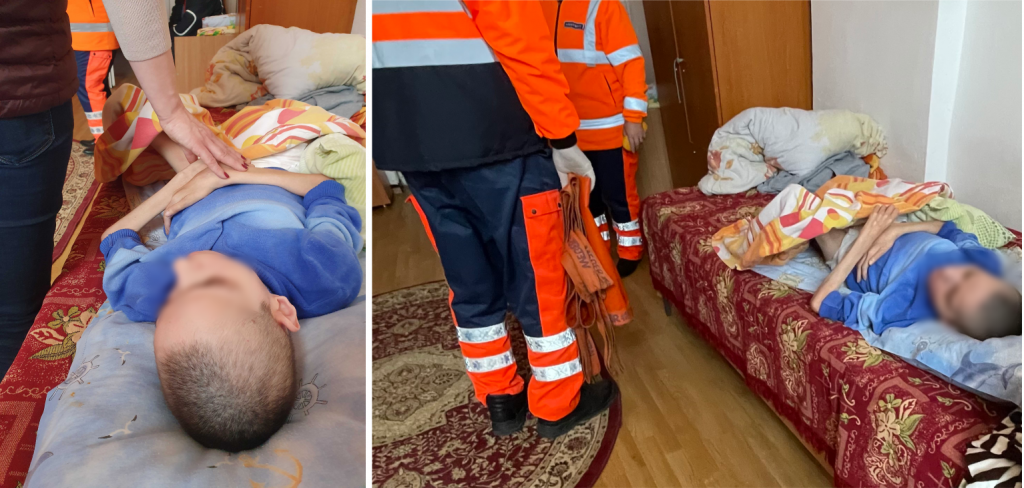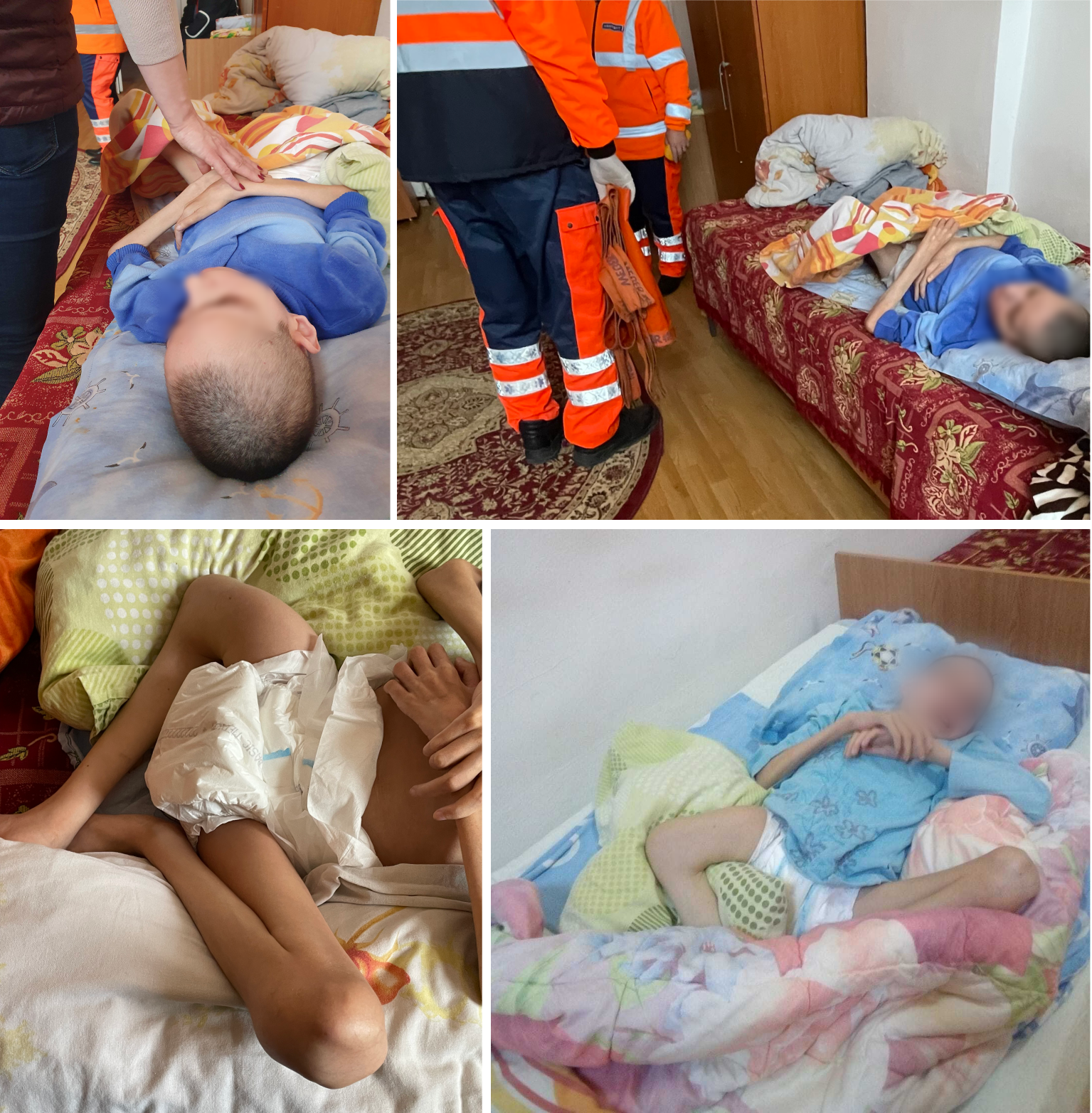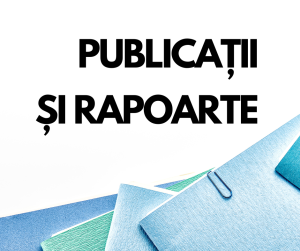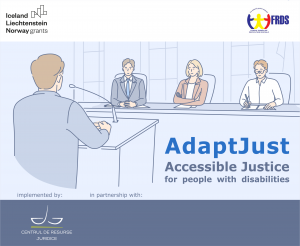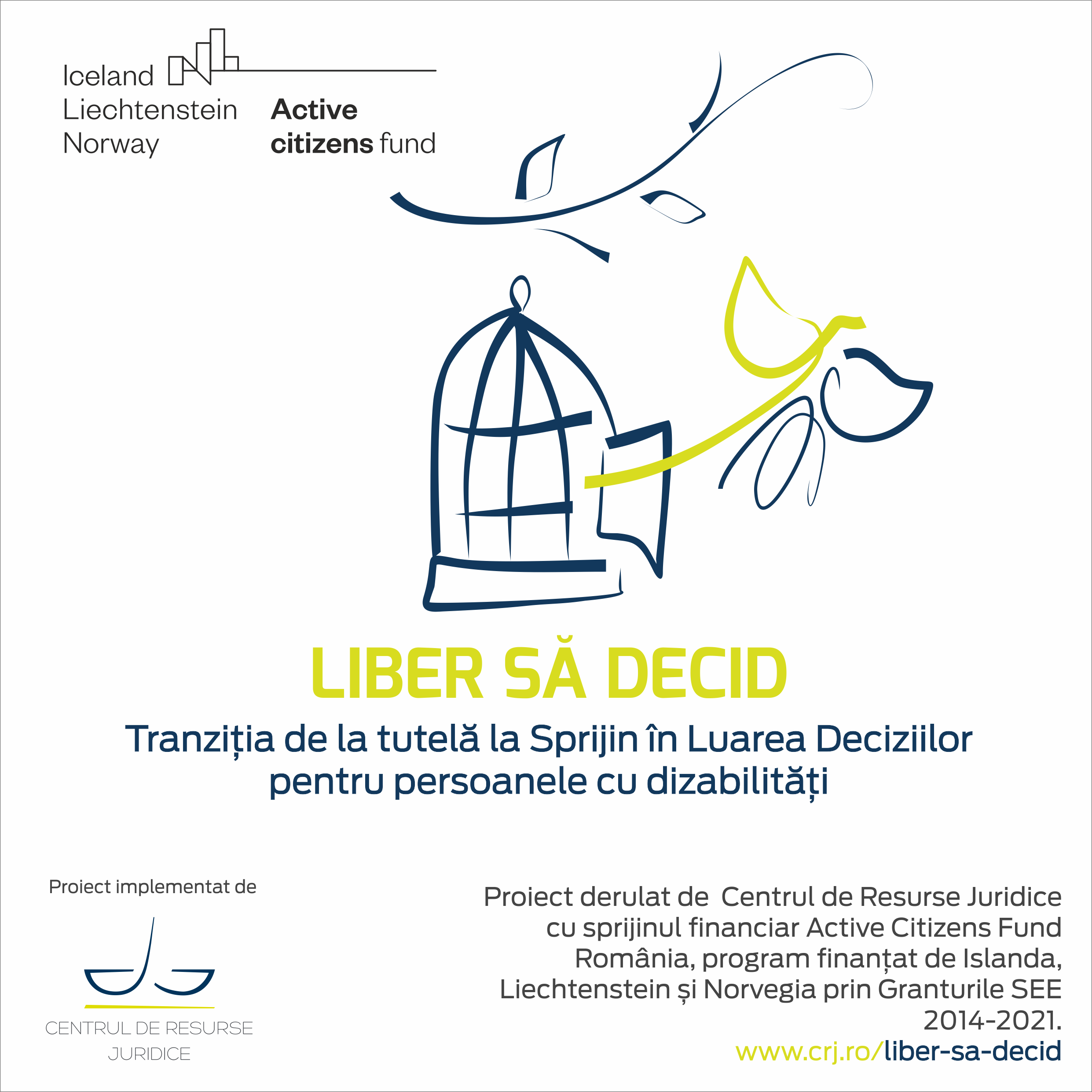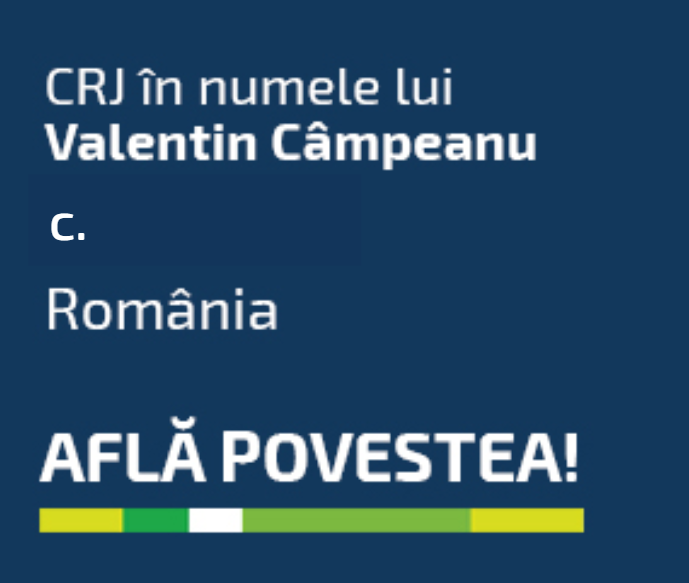UPDATE 13 JANUARY 2022: A month and a half after the CLR complaint on the case of Mrs. G.S., disabled resident institutionalized in the Care and Assistance Centre (CIA) in Zătreni, jud. Vâlcea, we received responses from 5 authorities: The National Authority for the Rights of Persons with Disabilities, Children and Adoptions (ANDPDCA), the National Agency for Payments and Social Inspection (ANPIS), the General Directorate for Social Assistance and Child Protection (DGASPC) Vâlcea, The Vâlcea County Council and the Vâlcea County Prefecture.
All answers available HERE.
Following the complaint lodged by CLR, the Public Prosecutor’s Office attached to the Valcea Tribunal started the investigation.
________________________________________________
Nr.599/03.12.20201
To:
Mister. Klaus Iohannis, President of Romania
Mister. Nicolae Ciuca, Prime Minister, Government of Romania
Mister. Marius-Constantin Budai, Minister of Labor and Social Solidarity
Miss. Florica Cherecheș, President of the National Authority for the Rights of Persons with Disabilities, Children and Adoptions (ANDPDCA)
Georgiana: a human or just a number?
– OPEN LETTER –
December 3 is the International Day of Persons with Disabilities, a day that we mark, annually, with messages of solidarity for these vulnerable people. We, the Center for Legal Resources (CLR), are writing to you today to ask you to save a human: Georgiana.
The human we are talking about is a young woman with disabilities, institutionalized, suffering in inhuman conditions, and who is systematically denied medical treatment and care that are necessary for her recovery. For months, this young woman has been lying on a bed in pain and, if CLR had not been warned by an anonymous phone call, her story would have remained within the walls of the room where she is immobilized for so long.
On November 23, 2021, CLR was notified by phone call of a young woman with intellectual and blind disabilities who has been suffering from a femur fracture for four months, which occurred in the Care and Assistance Center in Zătreni (CIA Zătreni) and for which neither the doctor nor the management of the General Directorate of Vâlcea Social Assistance and Child Protection (DGASPC) did not take measures to mitigate her suffering.
Two days later, on November 25, during an unannounced visit to Zătreni, CLR found in one of the center’s bedrooms, a young woman with severe malnutrition, blindness, moaning in pain, with her right leg broken since July and, as it turned out. late, untreated. The young woman had her arms and legs immobilized and could not express herself. Against the will of the medical staff in the center, CLR called 112 for a medical crew to help the young woman. The UPU crew informed CLR that the doctor from the center in Zătreni needs to notify the coordinating doctor of the UPU that it is an emergency. It took more than an hour of discussions between CLR and the coordinating doctor, the nurses and the doctor from the center in Zătreni, so that in the end she could be transported to the Municipal Hospital in Drăgăşani. During all this time, the general director of DGASPC Vâlcea, Mr. Badea, ordered the chief of the Zătreni center to take out the CLR team.
Arriving at the center, the deputy director of DGASPC Vâlcea, Mrs. Jana Diaconu, and the chief from Băbeni center, delegated by the director of DGASPC Vâlcea to represent him, expressed their indignation regarding the unexpected visit of CLR in Zătreni, asking the same question ‘’whether CLR knows it is an emergency”. A few hours later, the deputy director told us by phone that the young woman had been consulted by the doctor from UPU Drăgăşani, that she had had an “ultrasound” and had a splint fitted, but that she did not have a medical emergency and was not hospitalized. The deputy director promised that she would personally take care of the young woman to receive the appropriate medical care. According to the CLR, the UPU doctor recommended “surgery in an orthopedic department”.
On December 2 a.d, around noon, contacted by telephone by CLR, the deputy director Diaconu stated that she was not scheduled or hospitalized because it was difficult with “these days off”. CLR conveyed to the management of DGASPC Vâlcea that this cannot be an excuse when the life of a suffering person is at stake and that it is important that the young woman with disabilities to be consulted urgently by a specialist doctor, not only for the fracture but also for the severe condition of severe malnutrition.
How did all of this happen ?
Georgiana, a 33-year-old woman with disabilities, has been institutionalized for a lifetime in the residential protection system: she has been moved from a placement center to a residential center where the elderly are frequently institutionalized. Being a person who cannot express herself easily and who also has a visual disability, most likely she had as legal representative until the age of 18 the director of DGASPC Vâlcea, Mr. Badea and depended entirely on the professionalism and goodwill of the employees of the centers in which he lived. Apparently, the director of DGASPC Vâlcea visited the center in Zătreni at least 7 times in the last 5 months and was directly presented with the case of this suffering young woman. We do not know what measures he took. We know that the young woman lost almost 15 kg in four months. Most likely, the management of DGASPC Vâlcea saw a young woman suffering on a bed from which she could have fallen at any moment and who could not ask for her help, to complain, to call 112 and to beg to be saved.
In Romania we have over 16,000 adults with disabilities institutionalized in hundreds of centers, crowded with 50 or 200 beds, even 8 persons in a room.There is no staff specialised in social work, psychology, mental health or vocational counseling. No access to a phone call for help or no ability to complain or be aware of emotional, physical or sexual abuse. The European Commission and the Romanian governments have allocated tens of millions of euros for the deinstitutionalization of these people on paper. All governments were aware that the money was not spent even 4 years after the allocation, but they preferred to postpone the completion of projects even if people’s lives were at stake. Because people with disabilities locked in residential centers are invisible – they only occasionally appear in reports, complaints, ECHR rulings and in the press.
Georgiana is not the only case registered in Romania: in 2014, the ECHR found Romanian state guilty of violating the right to life of the young Valentin Câmpeanu in the decision “CLR in the name of V. Câmpeanu v. Romania”. Also in Vâlcea, in 2017, CRJ notified and denounced to the prosecutor’s office the ill-treatment applied to the residents of the Center from Măciuca. Till this date, there is no solution in this case and the CLR team has been restricted from accessing any other center in Vâlcea County. In August this year, the CLR notified ANDPDCA and the Prosecutor’s Office attached to the Prahova Tribunal for ill-treatment and fatal blows in the case of two residents of the Center from Călineşti, Prahova, beaten by an employee. As in the other cases, the residents did not have the opportunity or were afraid to complain.
The Center for Legal Resources considers that Georgiana is the victim of a long series of ill-treatment, inhuman and degrading treatments, as defined by art. 3 of the European Convention on Human Rights. For the above reasons, pursuant to art. 290 from penal procedure code and art. 4 letter i) of Law no. 8/2016 on the establishment of the mechanisms provided by the Convention on the Rights of Persons with Disabilities, the Center for Legal Resources notified on December 2 the leadership of the Ministry of Labor, ANDPDCA, ANPIS, DGASPC Vâlcea and reported Center for Care and Assistance, Zătreni, Vâlcea County, ill-treatment and torture to which she was subjected due to lack of interest of DGASPC Vâlcea.
CLR makes Georgia’s situation public and appeals to you, endangering access to Georgiana and other people in similar situations in centers across the country, precisely because we are certain that urgent action is needed at the level of the institutions you lead.
“We want all those who are responsible for this young woman’s life to be aware that the moment we turn our eyes away from her, she is in danger. We are not talking about any danger, but that of losing one’s life, a life that in recent months has meant continuous, atrocious pain and a criminal lack of attention, even intentional. We are talking about a case of neglect and ill-treatment with devastating consequences on an extremely vulnerable person – with severe intellectual disability, nonverbal, blind, immobilized in bed.
We hope that Georgiana will not have the fate of Valentin Câmpeanu. I found Valentin just hours before he died. But that doesn’t just depend on the CLR , and it’s essential that everyone to whom we now make this desperate call know that from their positions they CAN and MUST watch over it. ” – Georgiana Pascu, program manager, CLR .
Today, the International Day of Persons with Disabilities, please do not leave Georgiana alone. Georgiana is not an imaginary character, she is not an abstract notion, she is a person with a disability in the care of the Romanian State, a person with rights who is currently in pain in a center in Vâlcea County. She is a human for whom the system puts more effort into hiding than helping.
She is one of the people referred to in the Convention on the Rights of Persons with Disabilities, who is waiting for us to honor these commitments, not just mark a day on the calendar.
We count on your immediate support.
For more information:
Georgiana Pascu, program manager
Center for Legal Resource
gpascu@crj.ro / office@crj.ro
phone 0729 881 159
See Here the COMPLAINT that CLR sent on December 2nd to Romanian authorities (The Ministry of Labor and Social Solidarity, The National Authority for the Rights of Persons with Disabilities, Children and Adoptions, The National Agency for Payments and Social Inspection and to The General Directorate of Social Assistance and Child Protection Vâlcea), on the basis of art. 4 let. i) of Law no 8/2016 and art. 33 CRPD on inhuman, degrading treatment, the serious health conditions and vulnerability state (and lack of adequate medical treatment) of Ms. G.S, a resident with disabilities, institutionalized in CIA Zătreni.
Note: CRJ has been carrying out monitoring visits since 2003 in the units where people with mental and / or psychosocial / intellectual disabilities and / or disabilities are cared for, children, young people or adults with the aim of guaranteeing continuous and independent monitoring of the provision of social assistance services. and increase the chances of identifying and reporting real-time dysfunctions or abuse that can have dramatic consequences. The LRC also provides the necessary assistance and representation for cases of lifting the judicial ban or for support in identifying and facilitating access to community living solutions for people with institutionalized disabilities.
The activity takes place within the project “FREE TO DECIDE. The transition from guardianship to decision support for people with disabilities ”, carried out by the Center for Legal Resources with the financial support of Active Citizens Fund Romania, a program funded by Iceland, Liechtenstein and Norway through the 2014-2021 EEA Grants. The aim of the project is to increase the capacity of people with mental disabilities, stroke and dementia to exercise their rights and maximize their autonomy / https://www.crj.ro/liber-sa-decid/
Active Citizens Fund Romania program is financed by the EEA Grants 2014-2021. The overall objective of the Grants is to reduce economic and social disparities and to strengthen bilateral relations between the 15 beneficiary and donor states (Iceland, Liechtenstein, Norway). The program is administered by the consortium of the Foundation for Civil Society Development, the Partnership Foundation, the Resource Center for Roma Communities, the PACT Foundation and Frivillighet Norge, which acts as a Fund Operator designated by the FMO – Grants Financial Mechanism Office EEA and Norway. Active Citizens Fund Romania aims to strengthen civil society and active citizenship and increase the capacity of vulnerable groups. With a total allocation of EUR 46,000,000, the program aims to develop the long-term sustainability and capacity of the civil society sector, stepping up its role in promoting democratic participation, active citizenship and human rights while strengthening bilateral relations with donor states Iceland. , Liechtenstein and Norway. For more information about Active Citizens Fund in Romania, please visit www.activecitizensfund.ro. For more information on EEA and Norwegian Grants, visit www.eeagrants.ro.

